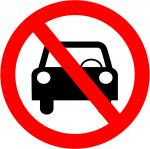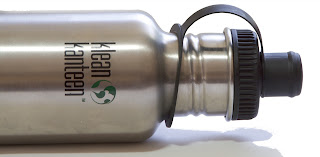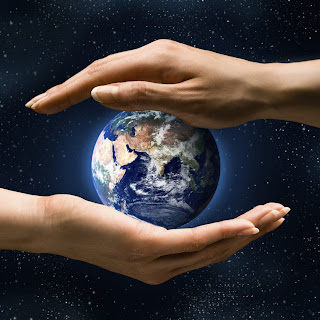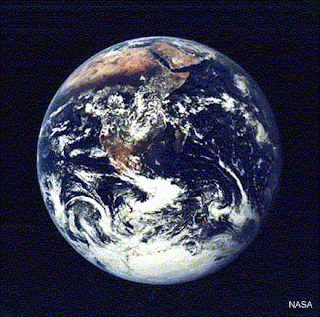 Last May (2009) our second car threw a timing belt which sucked into the engine and effectively destroyed the vehicle. Although we are a family of 5, with one student in school 25 miles away due to custody issues, we have never replaced that car.
Last May (2009) our second car threw a timing belt which sucked into the engine and effectively destroyed the vehicle. Although we are a family of 5, with one student in school 25 miles away due to custody issues, we have never replaced that car.
Kermit was wrong: It is "easy being green!" If we make ourselves aware that we have choices, many earth-friendly alternatives require very little effort and give big payoffs. Here is one household's experiment in going Green, the easy way.
 Last May (2009) our second car threw a timing belt which sucked into the engine and effectively destroyed the vehicle. Although we are a family of 5, with one student in school 25 miles away due to custody issues, we have never replaced that car.
Last May (2009) our second car threw a timing belt which sucked into the engine and effectively destroyed the vehicle. Although we are a family of 5, with one student in school 25 miles away due to custody issues, we have never replaced that car.
 It's a fairly ancient and standard joke that in the world of Politically Correct Terminology a trash hauler is a "sanitary engineer." Despite that, it is actually true that how we name things does affect how we perceive them. Here are a few suggested alternative terms for things that just might help folks understand why the green version is important:
It's a fairly ancient and standard joke that in the world of Politically Correct Terminology a trash hauler is a "sanitary engineer." Despite that, it is actually true that how we name things does affect how we perceive them. Here are a few suggested alternative terms for things that just might help folks understand why the green version is important: food." Try this term swap yourself, and suddenly organic food seems a lot more reasonable.
food." Try this term swap yourself, and suddenly organic food seems a lot more reasonable.  nature of human powered transportation in our cities and suburbs. I have taken to referring to "bike drivers" when discussing vehicular cyclists. Bike drivers have a right to use the road; bike drivers are serious vehicles, going places and doing things, not just sports enthusiasts out for a little ride.
nature of human powered transportation in our cities and suburbs. I have taken to referring to "bike drivers" when discussing vehicular cyclists. Bike drivers have a right to use the road; bike drivers are serious vehicles, going places and doing things, not just sports enthusiasts out for a little ride. So, you might hear me say something like this:
Tomorrow I'll drive my bike to the market after work; because of the bike I'll have an easier time parking than most of the car riders making the same trip. I'll buy our favorite clean pasta and sauce to cook for a big group of folks, but will probably compromise and buy chemically grown dark chocolate for the dessert we are making, and dirty artichokes because the clean ones are currently out of stock. "
See what I mean? The need to buy chemically grown and dirty food over clean food is terribly reduced. In my revised paragraph, the patchouli-tinged aura associated with a fluffy bike ride to buy organic pasta is reduced, as is the whingeing and whining factor that comes of complaining that your store is out of organic vegetables. No one could blame you for griping about having to buy chemically grown food -- even though most people don't realize that's what they're eating already anyway!
 Remember the advice of good old Humpty Dumpty:
Remember the advice of good old Humpty Dumpty:
'When I use a word,' Humpty Dumpty said, in a rather scornful tone,' it means just what I choose it to mean, neither more nor less.' 'The question is,' said Alice, 'whether you can make words mean so many different things.' 'The question is,' said Humpty Dumpty, 'which is to be master - that's all.'


NOVEMBER 28, 2007
 We are a just one family trying to make the transition from an unsustainable lifestyle to a reasonable one, and this blog has chronicled some of our discoveries and experiences about the "easy" green things to do.
We are a just one family trying to make the transition from an unsustainable lifestyle to a reasonable one, and this blog has chronicled some of our discoveries and experiences about the "easy" green things to do. clean foods are still priced in the region of luxury items, and we just can't justify the cost; in other cases we have our over-processed, chemically grown food vices we are not willing to give up.)
clean foods are still priced in the region of luxury items, and we just can't justify the cost; in other cases we have our over-processed, chemically grown food vices we are not willing to give up.)
 A while back, I wrote about giving up on plastic water bottles. Given our current rate of use, our cool reusable water bottles will have saved us $532 this year, and kept at least 1,825 plastic bottles from being created, or buried in the landfill.
A while back, I wrote about giving up on plastic water bottles. Given our current rate of use, our cool reusable water bottles will have saved us $532 this year, and kept at least 1,825 plastic bottles from being created, or buried in the landfill. year. At our local Trader Joe’s a case of bottled water the same size as our steel bottles works out to just over 29 cents per bottle. Thus, 1,825 x $0.29 = $532 in savings last year alone.
year. At our local Trader Joe’s a case of bottled water the same size as our steel bottles works out to just over 29 cents per bottle. Thus, 1,825 x $0.29 = $532 in savings last year alone. per bottle of water!
per bottle of water! I Would But . . .
I Would But . . .
 We’ll deal with these Top Ten Would-But excuses in future posts. For the moment it is enough to recognize a "would but" excuse for what it is – a temporary obstacle to be overcome. And once overcome, most of these would-buts seem terribly insubstantial.
We’ll deal with these Top Ten Would-But excuses in future posts. For the moment it is enough to recognize a "would but" excuse for what it is – a temporary obstacle to be overcome. And once overcome, most of these would-buts seem terribly insubstantial.


